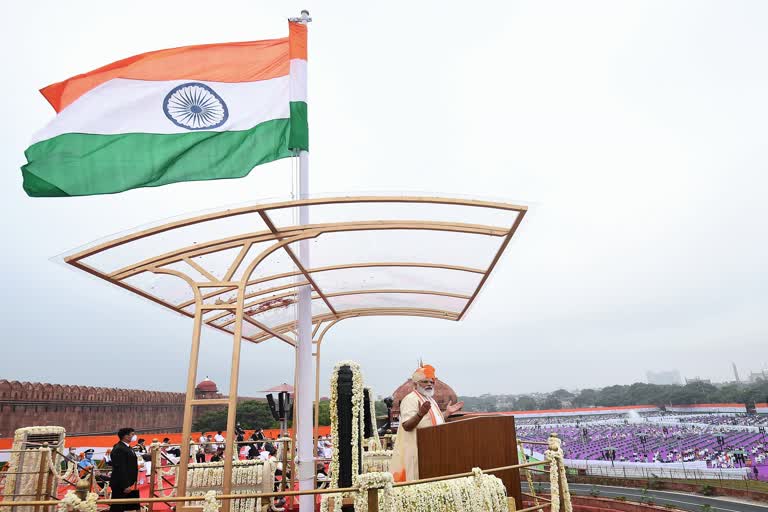“We should stop being a country that exports raw material and imports finished goods.”
That a Prime Minister of India should have to assert this on the country’s 74th Independence Day is steeped in irony because this was India’s aspiration and quest in 1947, to end lopsided patterns of trade imposed by the colonial administration.
Evidently, India has not succeeded.
It is no longer fair to lay the blame solely on the closed model of economy of the pre-1991 era which nurtured grossly uncompetitive industries.
The fact is that thirty years of liberalization – including radical trade liberalization and free trade agreements with several countries -- has also failed at facilitating a competitive manufacturing sector.
There is a common thread to both failures: the absence of domestic structural reform, particularly in factor markets, that would have produced a competitive free market.
There has been some concern about the precise meaning of Atmanirbhar Bharat since the Prime Minister’s clarion call a few months ago.
Like in the past, if the only lens from which this goal is viewed is trade policy and protection, then the chances of success are limited.
Atmanirbharta cannot mean a high price economy afflicted by shortages (like pre -1991) which is what would happen if trade protection is unaccompanied by other structural reform.
Fortunately, the Prime Minister’s Independence Day speech suggests that it is not a return to the past.
Read more:On I-Day, 'Atmanirbhar Bharat' dominates Modi’s speech: Key takeaways
Crucially, Modi made it clear that the goal is Make in India for the world.
This requires industry to achieve global competitiveness, much like the strategies of the East Asian economies and China did.
The Prime Minister also stated that Atmanirbharta is not simply about consuming goods made in India but also involves raising our capacities, skills and creativity.
An important feature of the success of the emerging economies of East Asia was a strong foundation in education for their people, non-negotiable for capacities, skills and creativity.
In this context, the implementation of the recently announced New National Education Policy could chart a different course from India’s past, both pre- and post- liberalization.
Perhaps the most important thing that the Prime Minister said was the need for not just products to be globally competitive, but also policies and processes.
If the government machinery takes the correct guidance from this, it would require an implementation of manufacturing-friendly reforms across land, labour, capital and infrastructure because raising trade barriers alone does not make for a globally competitive policy.
In fact, if the entire gamut of structural reforms, missing in the pre and post 1991 era, is implemented, the need for trade protection will be limited.
Indian entrepreneurs and managers have the skills and capacity to be world beaters. They just need a level playing field.
On shedding raw material exporting nation tag
A small note of caution while being pessimistic about the export of “raw materials”.
In recent decades, several countries such as Australia, which, like India, were once upon a time pessimistic about exporting raw materials have changed course and acquired prosperity on the back of exporting agricultural products and minerals.
Of course, a country of India’s size needs a robust manufacturing sector.
But agriculture and allied activities and minerals could also provide opportunities for export which would bring prosperity to millions of Indians while the manufacturing base is built.
It need not be either/or.
What is needed is a first-rate policy framework for the economy.
The Prime Minister has given the right message.
(Dhiraj Nayyar is the Chief Economist at Vedanta Resources Limited. Views expressed above are the author’s own. ETV Bharat neither endorses nor is responsible for the same.)


